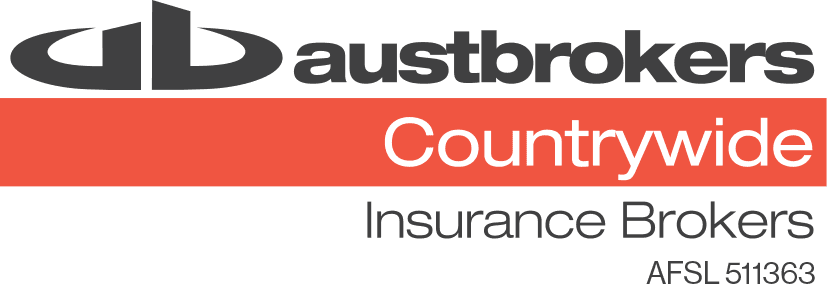Receive a Quote for Business Insurance

We currently don't have that product, but here are others to consider:
How we picked theseEach business is different so the cost of your product liability insurance quote will depend on your personal circumstances. Some things that may affects the cost of your insurance can include:
Product liability insurance coverage can protect your business against a wide range of scenarios including:
Personal injury and illness. If a customer is harmed as a result of your product. For example, if a product malfunctions and injures someone or a food or vitamin product makes someone ill.
Property damage. If your product damages someone's property. For example, a faulty pipe damaging a home.
Software damage. If a product of yours damages software. For example, malware damaging computer systems.
While it's not mandatory, product liability is strongly encouraged for businesses involved in the life cycle of a product. This can include parties that are directly or indirectly responsible for the damage. Here's who it could include:
As you can see, many people could be liable for a faulty product. That's because lawyers will try to determine who's responsible for the product failure and that blame does not always lie with the same party. For example, an electrician installing a power point in a home may not have created or imported the products used but they could still be liable for claims if they didn't install them properly.

"If your business sells products, you need to think about getting product liability insurance. It can cover you for legal claims made against you as a result of an incident that's injured someone. Keep in mind that product liability insurance only covers claims made by external parties, not ones made by your own employees."
In a nutshell, product liability insurance is a subset of public liability insurance. It covers you when it is your product that causes the harm. Public liability on the other hand, is a little broader. It protects you from lawsuits that may not necessarily be related to the products you provide. For instance, if you are a store owner and someone comes in to use the bathroom and slips, public liability would protect you in case of a lawsuit. Check out the examples for further clarity.
 Product liability
Product liabilityThe damage happens because of a product you made or sold. Example: You're a bicycle shop owner and you sell someone a bike with an overinflated tyre that pops and causes them to crash.
 Public liability
Public liabilityThe damage happens on your premises and is unrelated to your products or direct service offerings. Example: You're a bicycle shop owner and someone slips on some gear grease that had been spilt on the shop floor.
Product liability insurance is often covered under a public liability insurance policy or bundled together. You may find that they have different types of coverage limits. For example, your public liability policy may have an unlimited number of claims per year that it will cover you for, while your product liability is more likely to be capped at a certain dollar amount. If you think about it, public liability has to cover you for a lot more than just your products, so it makes sense that product liability cover is often slightly smaller.
Receive a Quote for Business Insurance

Farm insurance can provide the protection Australian farmers need. It can include ✓ building insurance ✓ crop insurance ✓ livestock insurance
There are various types of insurance to consider based on your specific business needs. Find out more in this guide.
Complete guide to getting insurance for trucks in Australia.
Read the Finder guide to workers compensation insurance and get cover in place.
This hourly rate calculator helps you consider your costs and profit and divide that by the number of hours you will work.
Read more about NRMA business insurance and its features.
If you run a business from home you need to make sure your business is properly insured. Read our guide to this specific type of business insurance and learn how to cover your home business.
Receive quotes for cyber liability insurance from Australian brands.
Commercial property insurance is designed to protect business items.
Hi, i am wanting to use my own personal ride on electric golf scooter, the golf courses are asking for public liability, i am having trouble finding insurance to cover this … can you help me
Regards Wayne
Hi Wayne,
Your path forward is depending on what type of vehicle it is, and what state you’re in. I’ll answer for NSW, but you’ll need to look up the details locally. If we’re talking about a proper golf buggy, the 2-seater kind, then you’ll probably need to apply for Conditional Registration. This is a watered down version of the CTP and rego that you get on your car – CTP is included in the cost of conditional rego in NSW.
If the vehicle is more like a mobility scooter, then you might need a separate public liability policy – these are normally only issued to small businesses, which makes it a bit tricky. Best bet is to find a small business insurance broker that can help you, or call a public liability insurance company directly to talk through your needs.
Hope this helps, and enjoy the links!
Hi, I make my own nail polishes and beauty products, do you have any recommendation for product liability insurance? I already have public liability insurance. TIA
Hi Pari,
I hope you are doing fine today. Thanks for your question.
As we are a comparison website, I cannot recommend or suggest a specific option for you, as your decision would entirely depend on your needs.
On the page you are viewing, you may fill out the form for you to receive a quote for product liability insurance.
I hope this helps.
Cheers,
Judith
If we want to be a distributor for a certain camera brand from China. Apart from product liability what other insurance do we need? I would like a quote please. Thank you
Hi Renae,
Thank you for your inquiry.
As we are a comparison website, I’m afraid we may not be able to recommend specific insurance to you as the best option would depend entirely on your situation by taking into account the type of your business, your cover needs, and the insurance you can afford. Nevertheless, there are types of business insurance that you’d want to check. If you’d like to get a personalised business insurance quote, best to fill out the form from that same page and click on the green “Enquire Now” button.
Please ensure you review the relevant PDS and T&C before purchasing a cover.
Cheers,
May
Hello. I am wanting to start a small home based business making baby wash, lotions etc. that a naturally based. I have developed the product and now am looking at the next steps. It will be an online business with myself doing everything and not employing anyone. What type of insurance will I need to start with? and around about what will I need to pay?
Hi Fran,
Thank you for your enquiry. Considering you are manufacturing your own product to distribute to the public, it would definitely be worth considering taking out product liability cover to offer protection in the event that a claim is made against you. It is not possible to provide you with an estimate for what you will pay based on this information alone as many other factors will need to be considered. finder.com.au is not currently partnered with any business insurance providers but we can recommend the business insurance broker austbrokers.com.au/
Thanks again for your enquiry and apologies for not being able to provide more assistance at this stage.
Hi,
I am new in business and just started sourcing out for product liability insurance for my business. I am selling security products importing from China and resell it in Australia. However, all of the insurance companies I called advise that they do not offer product liability insurance to anyone that import Electronic products from overseas especially security products (cctv, camera gadgets etc) because I am considered as the manufacturer of the products if I’m importer. The insurance companies advise that we should go for insurance brokers to source for the product liability insurance. We have being sourcing for the past few months and it appears that anyone that sell imported security products from overseas will not be able to cover the business in terms of product liability. Do finder.com.au know of any insurance companies that offer this type of product liability insurance.
Your help is much appreciated.
Al
Hi Alan,
Thank you for your enquiry. Unfortunately, most insurers will exclude cover for products that are imported from overseas. Finder does not currently feature any Business Insurance providers that will provide cover for this type of product distribution. You may wish to make an enquiry with the Australian General Insurance Broker Group Austbrokers.com.au
We apologise for not being able to provide further assistance with your enquiry at this stage.
Thanks again for your enquiry and all the best.